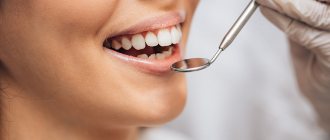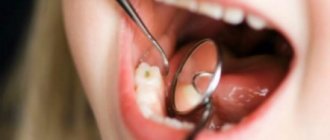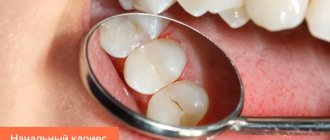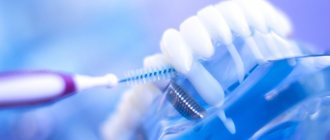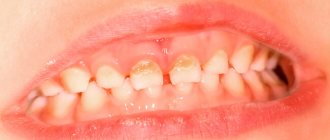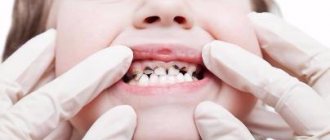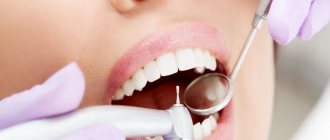Treatment of dental pathologies in children is a complex process that requires extensive practical experience and knowledge of child psychology. Especially when it comes to baby teeth. In order not to damage the rudiments of permanent units, the doctor must perfectly know the technique of performing manipulations and act very carefully.
Children's doctors at the Levoberezhnaya Dental Clinic try to save teeth even with extensive damage and remove them only as a last resort. You can make an appointment by calling the phone number listed on the website or using the online form.
Treatment of caries of children's primary teeth
Caries of primary chewing and front teeth has long been treated without the slightest pain.
New modern techniques have reduced the use of drills and drilling to a minimum, and timely scheduled examinations make it possible to detect the disease at a very early stage. The doctors at Aza&Buka Pediatric Dentistry who work with young patients are distinguished by an amazing sense of tact and constant positivity. Knowledge of the child’s psychology allows doctors to build communication and dialogue in such a way that children sit in the dental chair without the slightest fear. If the child already has some dental phobia, then adaptation techniques can solve the problem.
Caries on baby teeth in children is treated using the following technologies:
Peculiarities
Babies' first teeth appear at one year of age. By the age of three, they have grown a full set of them.
They have their own characteristics:
- thin enamel layer;
- loose structure of dental and gum tissue;
- undeveloped local immunity;
- high degree of tissue vascularization.
For these reasons, children's teeth and gums are more susceptible to the pathological effects of bacteria. Inflammatory processes occur faster in them, infection spreads faster, and complications occur more often.
Classic filling
requires a special approach when treating young patients, since the doctor has to use dental equipment, which often causes fear in children.
Aza&Buka dentistry uses both traditional and modern methods of treating caries of primary teeth, selecting a method taking into account the age of the child and the degree of neglect of the process.
Plaksina Margarita
“Modern parents are great! They themselves are not afraid of dentists, and children are taught the same thing: to come on time for preventive appointments and examinations. In such cases, doctors can intercept the very beginning of a cavity infection and prevent tooth decay without drilling.”
Where can you get your child’s teeth treated without fear?
It is good if the child is observed by one dentist throughout the entire period from early childhood to 18 years.
Firstly, the baby will always see a familiar doctor in front of him and will not be afraid, cry or worry. And secondly, a specialist who monitors the child’s dental health from an early age knows all its features and will notice the problem at the very beginning of its development. It is important not only how teeth are treated for children 2 years of age and older, but also where it is done. All establishments in the city are divided into three large groups:
- State clinics. This option is best left for last resort. Why? There are long queues, many capricious children, nervous parents and doctors who are given a limited time for an appointment and not a minute more. At the same time, dental equipment, as a rule, remains from the last century, and no one has heard of good medicines and fillings.
- Special children's rooms in high-profile private hospitals. If you are looking for a good combination of price and quality, then this option is suitable. There is all the necessary equipment, modern medications designed specifically for baby teeth, and a specialist doctor whose competence includes only the treatment of children’s first teeth will work with a boy or girl.
- Private specialized children's dental clinics. They are intended exclusively for small patients. Here everything is done for their coziness and comfort, there are no long queues, all patients come only at the appointed time, and you can make an appointment for a convenient day for an appointment. All equipment, instruments and medications are intended exclusively for children's teeth. Well, the quality of service always remains at the highest level. The only negative is the high prices, and even a simple consultation will be paid.
Which treatment methods to choose and where exactly the baby should be treated is, of course, decided by the parents. You should not go to extremes and should choose according to your financial capabilities. After all, even in a free city clinic you can get access to competent and experienced specialists. The only thing that remains is to read the reviews and ask your friends who and how they treat the teeth of children aged 4 years. If possible, immediately contact a paid pediatric dentistry.
Milk caries: initial, superficial, medium, deep
Doctors distinguish 4 stages of the formation of carious areas:
- Initial caries - tooth enamel becomes covered with small spots of white or yellowish tint.
- Superficial caries - the enamel begins to deteriorate, small and light cavities are observed.
- Medium – the layer of tooth enamel is destroyed, the affected area extends deeper.
- Deep - the layers of dentin have already been affected, and the pulp is under threat.
It is necessary to treat milk caries at the very first stage, although it does not cause any discomfort in the child. The fact is that the enamel and crowns of temporary teeth are subject to rapid destruction, and the development of caries occurs very quickly. Deep caries often provokes irreversible changes, which leads to premature removal of the baby tooth.
Rodikova Tatyana
“Medium and deep caries most often occurs in schoolchildren, almost teenagers. Children brush their teeth poorly, and they talk about problems only when caries has already affected the pulp. In this case, the treatment turns out to be more unpleasant, since removal of the pulp cannot be avoided. That’s why I always ask parents to carefully monitor their teenagers’ hygiene and bring them to appointments on time.”
How to properly care for children's teeth?
Children under school age have poorly developed fine motor skills; the child is simply not able to fully clean the oral cavity on his own. Parental assistance is mandatory. Parents should definitely know how to care for their child’s teeth after one year?
The main thing is to adhere to this list:
- Regular oral hygiene.
- A diet with plenty of vitamins and nutrients.
- Visit your doctor every six months.
How to care for a one-year-old child's teeth?
When a child is just born, it is very important for him to be fed breast milk for the first six months; the more milk, the fewer visits to the dentist. Mother's milk is good for strengthening teeth and gums, filling the baby's body with all the qualities it needs. It doesn’t matter at what age children’s teeth are treated, it’s important how parents look after them.
By the age of one year, a child has 8 teeth; they do not require much care, since babies have a lot of salivation, which promotes self-cleaning of the teeth and oral cavity. Sometimes after feeding you need to wipe it with boiled water.
The best way is standard oral cleaning. The brush is held at 45 degrees, we make 14 movements from the gum to the edge of the tooth, having cleaned one part of the teeth, we move on to the next. We clean the inside and outside of the teeth using smooth movements. Cleaning time takes three minutes.
Category Children Published by Mister stomatolog
Reasons for the development of caries in temporary teeth
When visiting a dentist, parents are invariably interested in the reasons for the appearance of such an unpleasant disease. This is important because it helps prevent damage to new teeth. Sometimes it is enough to change eating habits and hygiene patterns so that the child forgets about fillings for a long time, and only comes to the dentist for examinations.
Causes of caries:
- Poor or insufficient oral hygiene. Food remains in the interdental space and on the enamel are an excellent environment for the development of carious bacteria.
- An unbalanced diet with a preponderance of sweets and carbohydrates - during the fermentation of simple carbohydrates, acids are formed that provoke the destruction of enamel.
- The lack of solid foods in the menu leads to a decrease in the frequency of chewing, reduces salivation and becomes a common cause of caries of primary teeth in young children.
- Long-term use of nipples, including on bottles and sippy cups, increases the risk of developing single or multiple bottle caries of the anterior milk teeth in children.
- Rickets is a pathology that provokes the destruction of dental tissues.
- Genetic predisposition of the child.
- Problems with bite – various anomalies in the formation of the dentition.
- Decreased natural immunity due to frequent acute respiratory viral infections, chronic diseases, and taking various medications.
- Damage to tooth germs in the prenatal period - due to maternal illness or neglect of health in the first trimester.
Why do babies get caries?
Yes, caries in children under 3 years of age still surprises parents. "How so? After all, the baby doesn’t even know cigarettes and soda yet?” - they shrug their shoulders. In fact, there are two main groups of reasons for the appearance of caries in babies: poor lifestyle during pregnancy and insufficient oral care for the child after birth. Let's look at each group separately.
Pregnancy
The expectant mother should be especially attentive to herself. The baby's teeth begin to develop around the 12th week of pregnancy. It is important for a woman to understand that the process of feeding a child is a process that begins with conception.
For the health of the baby’s teeth, hair, nails, skin and other organs, the expectant mother should choose natural products that contain the daily requirements of essential vitamins and minerals:
- Dairy
. First of all, the expectant mother should choose cottage cheese, natural yogurt and hard cheeses. These treats contain calcium, protein, vitamins B, D, and Omega-3 polyunsaturated fats that baby’s teeth need.
- Nuts
- This is a storehouse of vitamins and nutrients necessary for the formation of teeth in a baby. Nuts contain selenium, magnesium, vitamin E, phytic acids and Omega-3 polyunsaturated fatty acids.
- Fish and seafood
. Everyone knows that fish contains the phosphorus needed by bones and teeth and beneficial vitamin D, which strengthens the nervous system of a pregnant woman and baby.
- Meat, liver
. Important cell building materials are meat and liver. These products contain the protein necessary for a growing body. The liver is rich in iron and B vitamins.
- Chicken and quail eggs
. These products contain more than 10 useful vitamins and microelements that affect the growth and abilities of the baby.
- Vegetables
. Vitamins, fiber, microelements and organic acids necessary for the development of healthy baby teeth are found in abundance in vegetables. Avocados, broccoli and carrots are especially useful for the expectant mother. These vegetables (in any form - raw or cooked) contain the most calcium, vitamins B, C and folic acid.
- Berries and fruits
– vitamin support for pregnant women and the key to the normal development of the child.
- Legumes
contain iron, folic acid and vitamin B-6, necessary for mother and baby.
- Cereals
rich in B vitamins, fiber and iron. Milk porridge will be very useful.
- Spinach.
The plant contains a lot of folic acid, calcium and vitamin A. In addition, the leaves are not at all difficult to grow at home on the balcony, and then enjoy them in the form of soups, purees and side dishes.
And, of course, the expectant mother should avoid taking antibiotics: such drugs can destroy the child’s health.
Treatment of pulpitis
If the infection is located near or has already reached the pulp chamber of the tooth, completely different treatment methods are used.
- Direct pulp capping. With this method of treatment, the viability of the entire pulp is preserved.
- Pulpotomy (vital amputation). The infected coronal part of the pulp is removed, its root part is preserved for further development of the tooth.
- Pulpectomy (pulpoextraction). The pulp is completely removed, after which the root canals are filled.
If a small patient is brought to the clinic in a timely manner, pulpitis can be cured in one visit.
Dentist recommendations
Your baby needs to brush his teeth 2 times a day from the moment the first tooth erupts. This must be a mandatory and strictly observed rule. In this case, teeth cleaning should be of high quality; the recommended duration of the procedure is 3 minutes.
- How to choose a toothbrush for a child?
The toothbrush should be of medium hardness; pay attention to the markings according to the child’s age.
- Which toothpaste should you choose?
From 3 years of age, it is better to use toothpaste with fluoride, selected according to the child’s age.
- Oral hygiene
Teach your child to use dental floss to clean spaces between teeth that are difficult to clean with a brush.
- Reduce your intake of sweets
If possible, reduce your consumption of sweets - sweets, lollipops, cookies, sweet soda! If a child has eaten a product with a high content of carbohydrates - and they are dangerous for baby teeth - be sure to brush the teeth and do not leave food for bacteria on the teeth. If your child has a sweet tooth, give preference to marshmallows and marmalade, but, of course, in limited quantities.
- Scheduled visit to the pediatric dentist
Visit your dentist twice a year for professional hygiene, starting at age 3. Medical examinations twice a year should also be on your list of mandatory events.
- Child's diet
Include more hard foods in your child's diet - fresh apples, carrots, and boiled meat are useful. Food should not only be soft or pureed.
More detailed and individual recommendations are given after examination and consultation in our clinic.
How not to be afraid of the dentist for children 10 years old and older
While it is still possible to agree on something with a child, it is much more difficult to do this with a teenager. Age plays a huge role - it is difficult and critical; it makes you distrustful of adults and often enter into conflicts with them. Your main task as a parent is to establish a warm relationship with your own child. It is necessary to explain: his choice is respected and taken into account. Next, by creating a favorable psychological environment, you can position your child to visit the dentist’s office.
However, everything is not so simple here either. Sometimes fear is caused by unpleasant experiences in early childhood. You can hardly get by with just one conversation. How then? Let's look at some tips from dentists on what to do if a child is terrified of going to the dentist:
- Talk through all the procedures to be done. Often the unknown is much more frightening. A detailed discussion of all manipulations helps to dispel some of the fears.
- If your teen refuses a visit and the situation is not an emergency, do not insist on treatment. Perhaps he just needs a little time to collect his thoughts and make up his mind.
- Form positive self-preservation attitudes and motivation for regular and timely dental examinations. Try to instill a love for beautiful snow-white teeth, an even smile, and fresh breath. When all this is valuable to the child, he will want to take care of his oral health.
- Don't refuse support. By law, the parent has the right to be in the office during the procedure. Don't neglect it. In your society, the teenager will feel protected, and, therefore, everything will go more smoothly.
Well, and, of course, one cannot fail to mention the role of a specialist. He must have quite a wealth of practical experience in order to be able to win over a young patient and gain his trust.
Union with a doctor
A problem with a child’s teeth is a common problem for parents, the child and the doctor. Each of the participants in the process has their own tasks. But the treatment will take place and proceed normally if we combine efforts, therefore:
- Try to tell your doctor all the necessary information. Not only about health, but also about the child’s character: what he loves, what he does, what he dreams about, how you usually agree with him.
- Often when a child resists treatment, parents really want to help the doctor, but if you see that your actions are not helping, then give the doctor the opportunity to find contact with the child himself. Take on the role of observer.
- Be prepared for the fact that the doctor, after discussing the treatment plan and cost with you, will ask you to leave him alone with your child. Please be understanding about this. Moreover, according to our research, this is a fairly effective way to overcome problems in a child’s behavior.
What to do when a child is very afraid and does not want to have his teeth treated: how to persuade him to go to the dentist
Some modern techniques, developed jointly with psychologists, involve exciting adventures, while others involve a preliminary study of possible problems. Below we talk about the most successful and popular practices that can be easily adapted to Russian reality.
Playing doctor
This is a unique tool for understanding the world around us, especially in childhood. Even the most unremarkable and disgusting things seem more attractive and interesting if they are presented in a positive playful way. Turning a standard trip to the dentist into a real adventure is an art. However, if you don’t want your baby to develop dental phobia, this is exactly what you should do.
Below are the most successful entertainment scenarios:
- Offer to treat your favorite toy's teeth. The child will be so interested in the process that he will want to check the condition of his own.
- Role-playing game. Something from the “mother-daughter” category, only “doctor-patient”. First, the parent will act as a dentist - just to explain and tell how everything works. And then the baby will try on this image. Such tricks help dispel fears before visiting the office.
- A fairy tale about the good doctor Aibolit. Before your visit, you can watch the old cartoon.
Of course, this is not a complete list of all games. You are free to invent and propose your own. The main thing is to create a comfortable psychological environment.
Reward and encouragement
Just as bad behavior in a dental clinic should be discouraged, good behavior should be rewarded. It is best to give the gift to the doctor so that he, in turn, gives it to the baby. Such a simple manipulation will win the favor of the little patient.
However, gifts should not become a management tool. During each visit, the child is introduced to the culture of health care and is more responsible about the state of the oral cavity.
Cartoons during treatment
Watching your favorite cartoon during a visit will help you take your mind off what the doctor is doing and concentrate on something more pleasant. This technique is actively practiced by dentists at Dentic Kids.
Own example
Of course, cartoons, games, gifts are all very good. But remember, nothing works better than a worthy personal example. If you yourself literally faint at the mere mention of the need to see a dentist, it is unlikely that you will be able to develop a love for this specialist in your children. That is why, before raising them, it is important to work through your own fears and phobias.
If, on the contrary, you understand the importance of dental treatment and endure any procedures, then it would be a good idea to go to the session with your baby. There he will see your positive attitude and will quickly be charged with the right mood.
